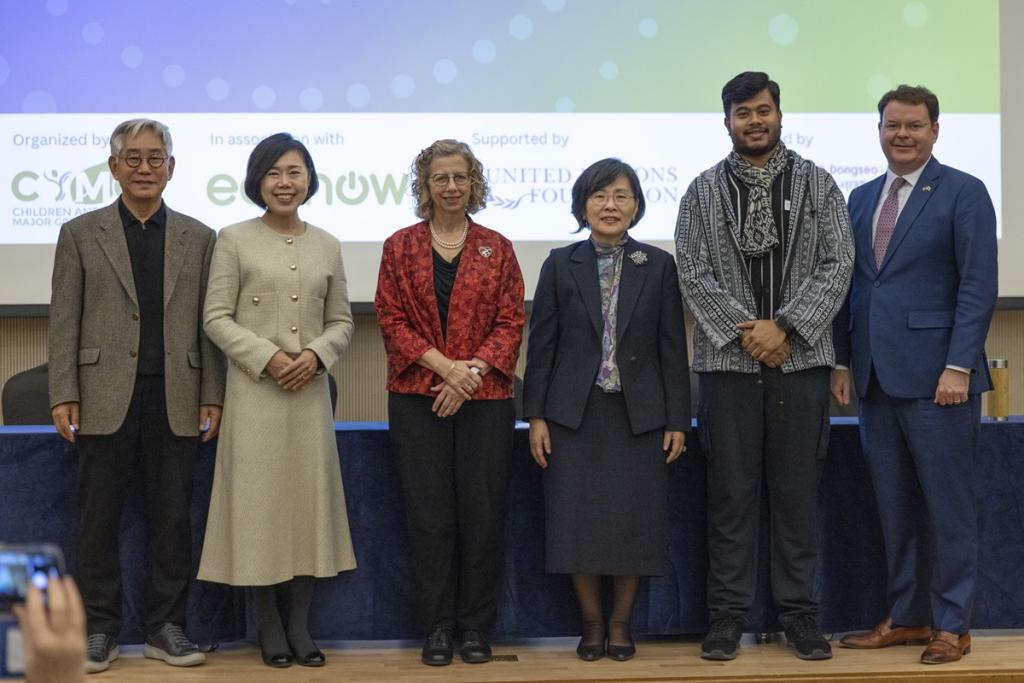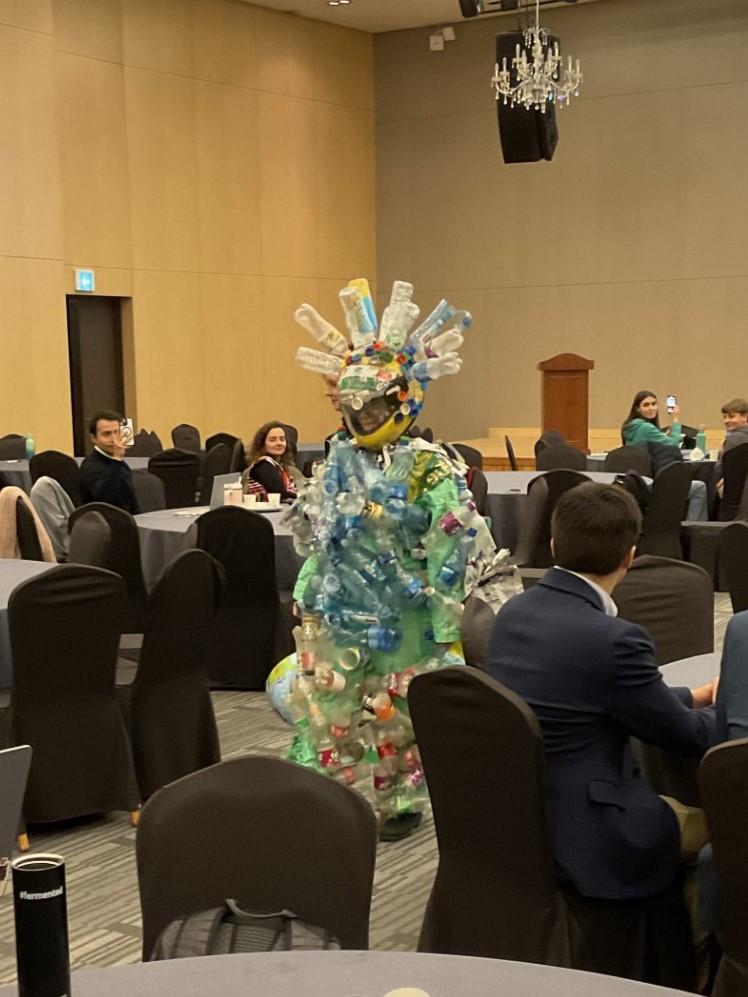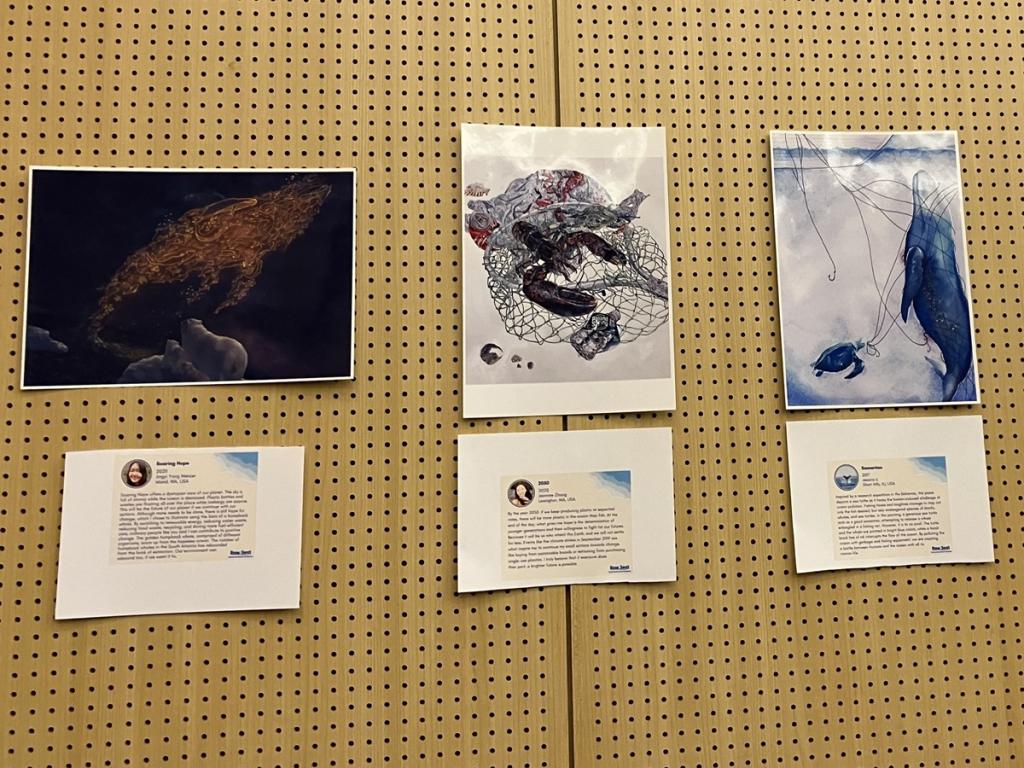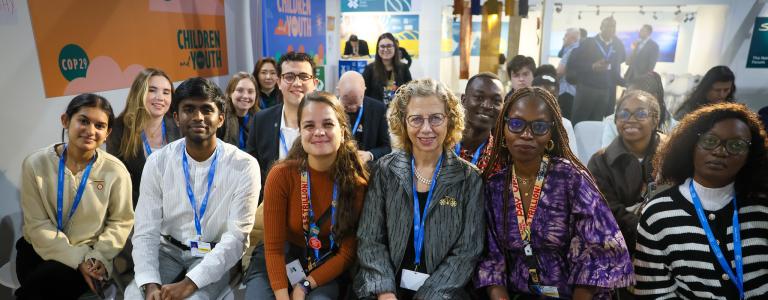This Is What Young People Have to Say About INC-5
The treaty must address the entire life cycle of plastics, youth tell INC-5 negotiators. We couldn’t agree more.
The world’s first international treaty to combat plastic pollution will be finalized during the fifth session of the Intergovernmental Negotiating Committee (INC-5) in the Republic of Korea. As delegates were arriving in Busan to negotiate the final text, there was already an important meeting underway. The day before INC-5 officially began, youth from 30 different countries gathered for a full day of discussions on what they expect to see from the treaty at the Youth and Stakeholder Assembly on Plastic Pollution.
The day started with a High-Level Opening Plenary: Multilateralism for a Plastic Pollution-Free Future, featuring Inger Anderson, the Director of the United Nations Environment Programme (UNEP), who gave the gathered youth an update on what to expect from the negotiation.
The final say on the high-level panel went to Zuhair Ahmed Kowshik, the Global Coordinator of Official Youth Constituency to UNEP and of the children and youth major group (CYMG). Kowshik outlined the position of CYMG: while it is crucial to have a deal signed this week, the negotiators must ensure they are representing their people, not just the big economic actors. Kowshik also stressed the importance of remembering that plastics are closely linked to other environmental issues like climate and biodiversity. This is why CYMG supports a high-ambition treaty that encompasses the whole plastics life cycle.

Following the initial panel, several youth-led thematic panels focused on issues ranging from financial instruments to inclusive involvement of all stakeholders. Throughout the day, young people flagged three key major concerns and hopes for this plastics treaty.
- Inclusive and active stakeholder and rights holder engagement is crucial. Youth see it as vital that marginalized groups be included at all stages of decision making. This means that not only must marginalized groups have access to seats at the table, but they must also have access to clear and inclusive language and financial support to attend meetings.
- The treaty must focus on the whole life cycle of plastics. The youth want to see this treaty encompass the entire plastics life cycle, including production. Turning off the tap should be the highest priority.
- Youth need to be consulted. National delegations should be actively engaging with youth from their countries and reflecting their views in the negotiations process.
IISD actively supports young people in their holistic vision for the treaty. In fact, some of these asks are already reflected in our own five key expectations for the plastics treaty. In short, the agreement must be inclusive, and it can only be effective if it tackles plastics across their entire life cycle—from production to waste management. We must start reducing and restricting certain types of plastic production if we truly want to eliminate plastic from our food, bodies, environment and, of course, freshwater supplies.
Throughout the day, some more artistic representations of what the treaty means for youth were included. An art exhibition was visible throughout the day, featuring pieces by youth from around the world. After lunch, we were also treated to a music video inspired by the plastics treaty and an appearance by the plastic monster mascot.


Events such as this assembly are important for youth to engage on meaningful policy and climate concerns that have very real impacts on our future. Together, these events provide a platform for youth to advance advocacy efforts, develop better understanding of the issues at hand, and create cohesive policy stances to provide a voice for the younger generation.
It remains to be seen whether negotiators will listen to the demands of youth this week. In the meantime, any youth who wish to have their voices heard on the treaty can participate by responding to the plastic action survey by CYMG.
Header photo: United Nations Environment Programme under Attribution-NonCommercial-Share.
If you’re a young person interested in learning more about policy and its impact or want to prepare for a career in sustainable development, IISD Next hosts a Campus Workshop Series on Sustainability each academic year.
Sign up to learn more about the series.
About the Authors
You might also be interested in
Good COP? Bad COP?: Food systems at COP29
The 29th United Nations Climate Conference (COP 29) in Baku failed to build on the notable progress made on food systems at COP 28. However, it wasn't all doom and gloom.
Biden Exceeds $100B in Clean Energy Funding, Backs New Deal to End Oil and Gas Export Financing
With the weeks ticking down before he leaves the White House, U.S. President Joe Biden's administration is picking up the pace on clean energy financing, while getting serious about blocking tens of billions of dollars in export financing for oil and gas that could instead be diverted to the energy transition.
Ending Export Credits for Oil and Gas: How OECD countries can end 2024 with a climate win
For a year now, Organisation of Petroleum Exporting Countries (OECD) governments have been negotiating an agreement that could put an end to oil and gas export finance. Following the acrimony in Baku, this would be a very real way for the OECD to show policy coherence, respond to calls from the poorest countries to stop subsidizing fossil fuels, and shift public finance to solutions.
Emerging economies set up COP 29 agenda fight over trade measures
A group of emerging economies chaired by China has proposed that what they regard as protectionism by developed countries should be discussed formally at the COP 29 climate summit, setting up an "agenda fight" that could disrupt the talks.

